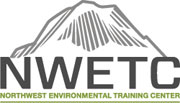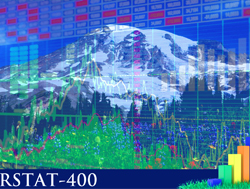**Note - For every course we have implemented live stream remote attendance . You will need a computer and an internet connection.
This course is designed for participants who wish to gain beginning to intermediate skills in using R for manipulating, visualizing and analyzing their environmental or ecological data. R is a comprehensive statistical programming language that is cooperatively developed on the Internet as an open source project. This freely available statistical package R is a powerful tool and is projected to become the most widely used statistical software.
This class uses datasets complete with errors you get practice taking real field data into R, through hands-on using instructor-led examples. It is applicable to anyone that conducts environmental monitoring or uses environmental or ecological data for research, management, or policy-making and is recommended for anyone needing to become proficient with R basics. Being proficient in R will help participants be competitive in their chosen fields.
"Provided a solid foundation yet linkages to allow one to delve deeper into more advanced topics." C. Lynch, October 2013 "Very good introduction to R, gained familiarity with data types and data manipulation." B. McGuire, October, 2013
"Provided a lot of information covering how to do many things in R. the book will serve as a good tool using R in the future." P. Kusnierz, October, 2013 "There were excellent course materials. I will be using the manual as a reference for along time to come." T. Kantz, September, 2013
"Hands-on learning; great instructor who knows the subject and the data; excellent camaraderie among the students." T. Kahler, September, 2013
|
After completing this course attendees will be able to:
- Understand the uses of R for working with environmental or ecological data
- Installing R and R libraries
- Import and export data from Excel
- Sorting, merging, and aggregating, subsetting, and converting data
- Query and display data and generate basic data summaries
- Create a variety of high quality data visualization graphics
- Perform common statistical tests including t-tests, ANOVA, and linear models
- Develop basic scripts to automate and document procedures and analyses
Please note that attendees will need to have a laptop to class with the R software program. Instructions on how to download the program will be emailed out prior to the class. Installations must be completed prior to class - please contact us if you are having problems.
*Reduced tuition is available for Native American tribes, government employees, nonprofits, students and AFS, NAEP, NEBC, TAEP members.
You may register online or by calling the Northwest Environmental Training Center at (425) 270-3274. Online registration is strongly encouraged.
Please wait to receive a course confirmation email, roughly one month prior to the class, before making any travel arrangements.








